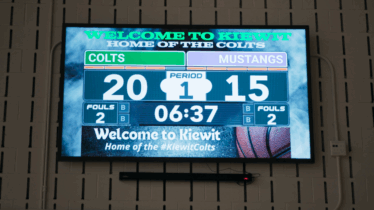As school districts prepare for another season of high-stakes online exams, a look at last year’s PARCC results points to the importance of digital literacy in ensuring student success.
Students who took the 2014–15 PARCC test online scored lower, on average, than those who took the pencil-and-paper version, and a PARCC executive said students’ lack of familiarity with the online format was likely a factor.
What can K–12 leaders learn from this? Digital literacy plays a key role in online testing outcomes — and students need exposure to using Chromebooks and other digital devices for more than just online exams.
Daily Exposure to Digital Devices
That’s something Tom Ryan has been arguing for years. Ryan is a former school district chief technology officer who is now CEO of the eLearn Institute, a nonprofit organization that helps schools design and implement their own high-quality e-learning programs. He also leads the Consortium for School Networking’s “Becoming Assessment Ready” initiative, and he believes schools should be using digital devices as part of their daily curriculum.
“The schools that will see the most success (with online testing) are the ones where technology is woven into everyday instruction,” Ryan says.
Because online exams require students to have functional literacy with computing devices, such as switching between screens, opening drop-down menus and highlighting words, students should be using technology in their day-to-day classroom experience so they are building these digital literacy skills, he explains.
Yet, 18 months before the first online Common Core exams were given last year, most school districts said they could not meet the device and infrastructure standards required for online assessments, a CoSN survey found. “That would indicate to me that students and teachers did not have daily access and use of digital instructional tools in their classrooms to support standards-based instruction,” says Ryan.
The Manhattan-Ogden Unified School District 383 in Kansas was an exception. Kansas was an early PARCC supporter but since then has developed its own online assessment, and Manhattan-Ogden has deployed Chromebooks and other digital devices for both testing and instruction, says IT Director and digital literacy expert Mike Ribble.
“The more often students use digital devices in their day-to-day learning, the more comfortable with those devices they become,” says Ribble, who has written a book about digital literacy and citizenship for the International Society for Technology in Education. Using digital devices daily could serve students well when they take high-stakes exams online, he says — and it also supports a more student-centered, inquiry-based approach to learning.
“Schools that have the most success with online assessment don’t approach it as a one-time event,” Ryan says. Instead, they embed opportunities for formative assessment into their instruction, so teachers are constantly getting feedback on their students’ performance throughout the school year.
Younger Students Perform Better in Online Formats
In Illinois, there were stark differences in the results from last year’s English/language arts PARCC test depending on how students took the exam: 32 percent of those who took it online scored as proficient, compared with 50 percent who took the paper version. In math, students in grades three through five actually scored slightly higher on the online version, while older students scored lower.
“I find it interesting that some students in grades three through five actually performed better with the online version than they did with the paper-based assessment,” Ryan says. “They were born about the same time as the shift to ubiquitous mobile device access started. That generation of children were born with digital devices in their hands.”
Find out how schools are creating Chrome classrooms by turning retired computers into Chromebooks to expand access to digital learning.







